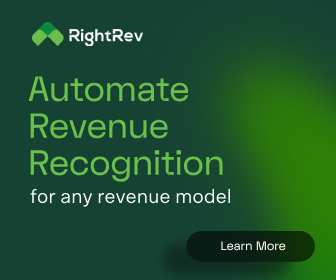For controllers looking to help fund a company’s growth, one of the many options you may have proposed in recent years was the idea of moving your business to a Qualified Opportunity Zone, part of the Tax Cuts and Jobs Act. If you did, you likely had to jump through a few hoops to set everything up, but it probably represented significant savings for your firm.
However, in response to the recent COVID-19 pandemic, some delays have been put in your firm’s entire move into one of these zones. If you were worried about these, a recent IRS update may have given you a bit more freedom.
Background: Qualified Opportunity Zones and Quality Opportunity Funds
Designed to help provide new investment in distressed communities, the introduction of Qualified Opportunity Zones was a way to add incentive to invest money in distressed communities. Initially covering part of 18 states, this expanded to cover parts of all 50 states. A key part of the Tax Cuts and Jobs Act, this program has helped create jobs for those who needed them most.
Discussed in much greater detail on the IRS Opportunity Zone FAQs (or IRS QOZ/QOF FAQs for the acronym lovers out there), here are the basics.
What is a Qualified Opportunity Zone (QOZ)?
According to the IRS, a QOZ is an economically distressed community where new investments, under certain conditions, may be eligible for preferential tax treatment. Localities qualify as QOZs if they have been nominated for that designation by a state, the District of Columbia, or a U.S. territory and that nomination has been certified by the Secretary of the U.S. Treasury via his delegation of authority to the Internal Revenue Service (IRS).
Created by the Tax Cuts and Jobs Act, these economic development tools are designed to spur economic development and job creation in distressed communities.
What is a Qualified Opportunity Funds (QOF)?
A QOF is an investment vehicle that files either a partnership or corporate federal income tax return and is organized for the purpose of investing in QOZ property.
Additional Deadline Relief in Response to COVID-19 Pandemic
In Notice 2020-39 (June 4, 2020), the IRS granted deadline relief for Qualified Opportunity Zone (QOZ) investors and Qualified Opportunity Funds (QOFs) in response to the COVID-19 pandemic. Extended deadlines apply to the following, as discussed in an Armanino article:
- 180-day investment period: The 180-day period to invest capital gain in a QOF generally begins on the date of the sale or exchange that generated the capital gain. Notice 2020-39 extends this investment deadline to December 31, 2020, if the original 180-day period for the investment would have ended at any time from April 1, 2020, through December 30, 2020. This extension is automatic.
- 30-month substantial improvement requirement: Under IRC Section 1400Z-2(d)(2), property can be treated as QOZ business property if it is substantially improved by a QOF or QOZ business within a 30-month period upon acquisition. Notice 2020-39 disregards the period beginning on April 1, 2020, and ending on December 31, 2020, in counting the 30-month period for substantial improvement.
- 90% investment standard requirement: The minimum percentage of assets held in a QOZ, Notice 2020-39 offers a bit more flexibility, as if a QOF fails 90% investment test during the period beginning on April 1, 2020, and ending on December 31, 2020, such failure is deemed to be due to “reasonable cause” and does not disqualify the QOF or investments into the QOF under §1400Z-2.
- 12-Month Reinvestment Safe Harbor: The time period for QOFs to reinvest certain proceeds under the Opportunity Zone regulations, Notice 2020-39 confirms that, as a result of the declaration of a federally declared disaster in all QOZs, the 12-month extension for QOFs to reinvest certain proceeds applies to all QOFs that otherwise qualify so long as the original reinvestment period included January 20, 2020 (the date of the disaster identified in the federal declarations).
- Working Capital Safe Harbor: The time period for QOZ businesses to expend capital under the working capital safe harbor, this referred to a QOZ business located in a QOZ within a federally declared disaster area, offering an additional 24 months to deploy working capital. Notice 2020-39 confirms that, as a result of the declaration of a federally declared disaster in all QOZs, the final regulations’ provision allowing a 24-month extension for the working capital safe harbor for QOZ businesses applies to all QOZ businesses that otherwise qualify.
Stay Up with All the Latest: Controllers Council
Times have changed, and if you want to keep up with everything, the Controllers Council can help. As your new source for news and advice, our goal is to help you stay up to date and make informed decisions about how to run your business. Get to know us.
Additional COVID-19 Resources
Reason for Hope? Some Say the Recession Looks to Be Short-Lived
Questions to Ask about Your Finances before You Pivot Towards Recovery
It Pays to Get Paid: Taking Steps to Speed Up Receivables in a Crisis




